Samsung Galaxy Z Fold 4 revisited: The good and the bad, six months later
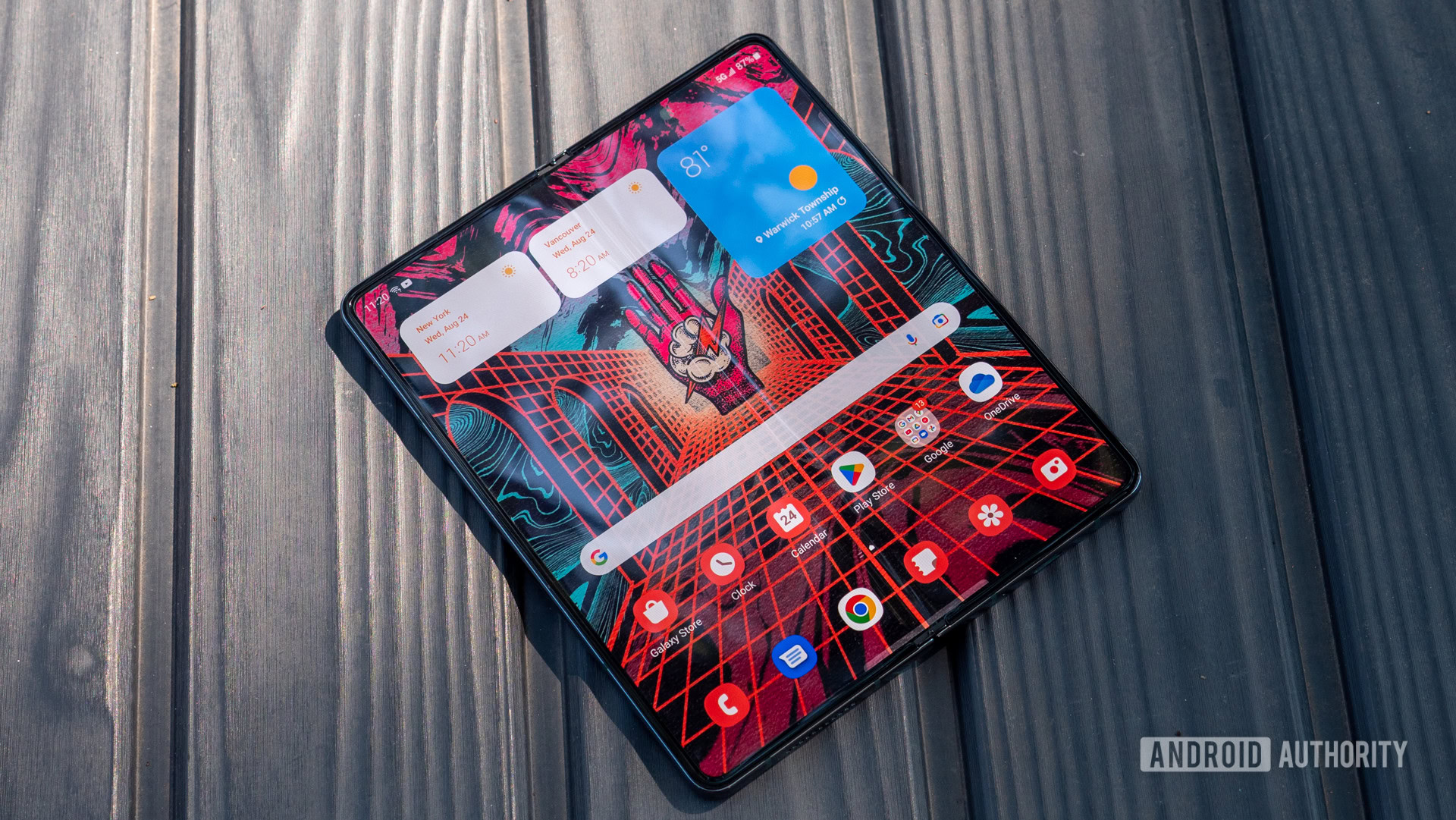
Ryan Haines / Android Authority
The Samsung Galaxy Z Fold 4 is far and away the best all-around foldable of its kind. There are other foldable phones out there that do a few things better, such as those that fold perfectly flat and those that have smaller form factors. However, the Galaxy Z Fold 4 has the hardware, software, and global availability that keeps it on top of the heap.
It’s been around six months since our original Galaxy Z Fold 4 review. How has the phone stood the test of time? I spent some time with the Galaxy Z Fold 4 and have a few thoughts on what’s aged like wine — and what’s aged like milk.
The good
Everything about the software
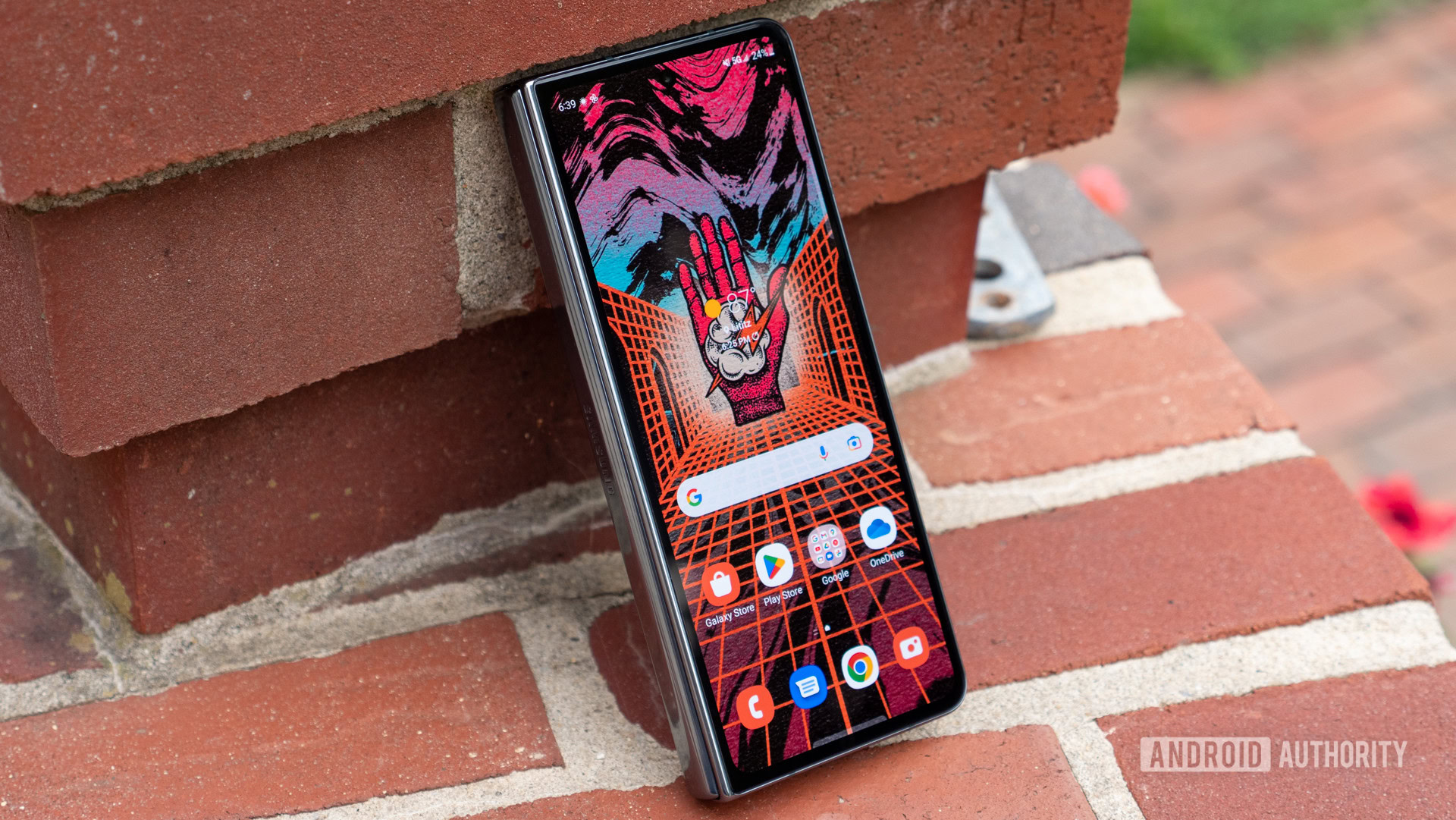
Ryan Haines / Android Authority
Developing a foldable smartphone presented Samsung with some monumental engineering challenges. Just getting the phone to open up without snapping in half probably took thousands of man-hours. However, hardware isn’t the only thing Samsung needed to innovate with the Galaxy Z Fold line, as software is also very important.
In the beginning, even figuring out a way to open a foldable and have the home screen layout expand was probably a huge challenge. At this point, though, Samsung is riding high with its software. Everything feels so intuitive with the Galaxy Z Fold 4, which is currently running One UI 5 based on Android 13. It includes tons of multitasking features, a desktop-like home screen dock, and smooth, easy-to-understand transitions as you open or close the display to varying degrees.
Samsung’s focus on software has paid off big time.
As an example of what I mean, when you open the camera on the cover display (the smaller one on the outside), you get a traditional smartphone camera software experience. If you fully unfold the phone while this app is open, the camera experience is very much the same, but there’s way more room for buttons, so more controls automatically appear. If you fold the phone halfway, a new camera interface appears that puts the controls on one half and the viewfinder on the other, allowing you to prop the phone on a table for a timer-controlled group selfie. There are no extra buttons to push to make these things happen — the phone does all the work for you.
Granted, some of the software features included with the Galaxy Z Fold 4 are thanks to Google, which incorporated a bunch of helpful tweaks in Android 12L (which were then blended right into Android 13). But Samsung deserves all the credit for leading the way here. Simply put, the software on the Galaxy Z Fold 4 makes it a joy to use, and it’s only going to get better from here. The phone will get new Android versions up to and including Android 16 and will receive security patches until 2026. There’s no telling the number of nifty new tricks this phone might be able to do by then.
Rear cameras

Ryan Haines / Android Authority
The rear camera on the Samsung Galaxy Z Fold 4 is very close to the system on the back of the Galaxy S23. A 12MP ultrawide lens flanks a 50MP primary shooter along with a 10MP telephoto that is capable of 3x optical zoom. Based on hardware alone, the Galaxy Z Fold 4 is no photographic powerhouse and it is easily outranked by the best camera phones.
While this might sound disappointing that such an expensive phone can’t compete with devices like the Google Pixel 7 Pro and the Samsung Galaxy S22 Ultra, it is actually a pretty big step up. The camera system on the back of the Galaxy Z Fold 3 and the Galaxy Z Fold 2 was mediocre (the two phones shared the same system), and the one on the original Galaxy Fold was actually pretty terrible. The Galaxy Z Fold 4 represents the first time Samsung has truly delivered a capable camera on a foldable, which is great.
Check out some sample shots below. These images were only edited with crops and rotations. They have been compressed for the sake of page loading time.
Obviously, if you have the kind of funds needed for a high-end foldable and heavily prioritize your smartphone’s camera capabilities, there are wiser ways to spend your money. You could get two Pixel 7 Pros for what you’ll pay for a Galaxy Z Fold 4, and you could even go for the maxed-out version of the newer Galaxy S23 Ultra if you wanted. However, it is nice to know that if you do shell out for a foldable, your camera experience is going to be good. We couldn’t always make that assurance.
Price (hear me out on this)
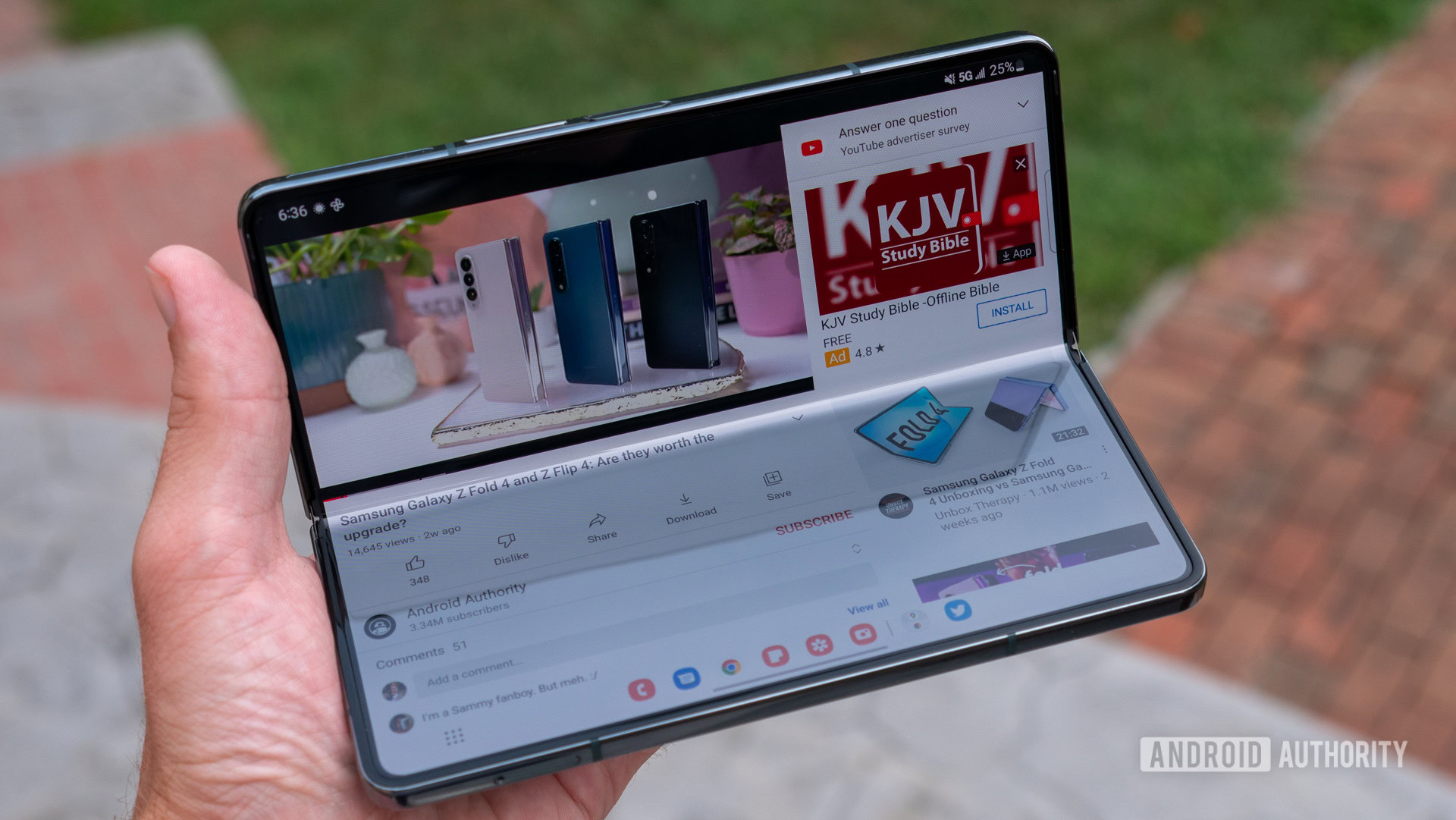
Ryan Haines / Android Authority
At a list price of $1,799, the Samsung Galaxy Z Fold 4 is one of the most expensive smartphones a person can get. This isn’t unexpected when you consider how difficult it must be just to build one of these things, let alone all the R&D costs Samsung needs to recoup.
However, the list price only really mattered six months ago when Samsung first launched the phone. Thanks to the rapid depreciation Android phones experience within only a few months of release, it is incredibly easy to get a Galaxy Z Fold 4 at a much, much cheaper price.
While writing this article, I found Amazon selling brand-new models for $1,499, which didn’t involve trade-ins or carrier sign-ups. You could just add it to your cart and save $300. I found an even better deal at Samsung.com if you were willing to trade-in a device, which netted you a new foldable for as little as $1,099. You could even hit up eBay and get an open-box model for under $999.
As the days and months go on and we get closer and closer to the inevitable launch of the next Fold phone, these prices will only get better. While the phone will never be priced as an impulse buy, patient consumers can grab one of these things for a song if they’re willing to shop around.
The not so good
Design rehash, including the crease
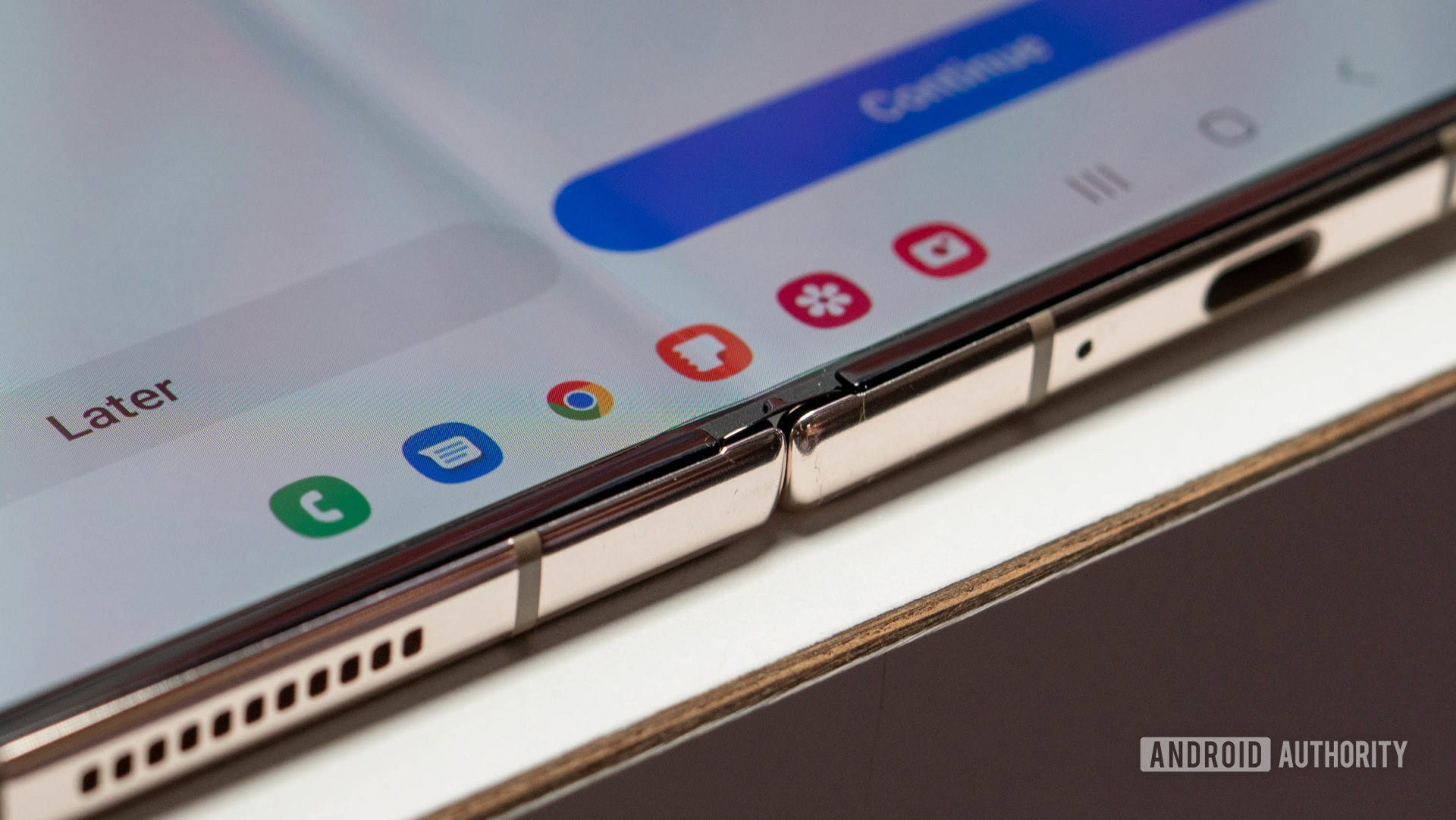
Kris Carlon / Android Authority
Samsung didn’t reinvent the wheel with the Galaxy Z Fold 4 design. Although it made plenty of subtle refinements — including making the phone thinner overall (discounting any extra bulk from a case), the cover display larger, and with less of a gap between the two halves of the display — it’s still basically the same thing we saw with the Galaxy Z Fold 3 and the Galaxy Z Fold 2.
Unfortunately, that includes the infamous crease. This appears in the middle of the phone when it is fully opened, and it’s just as much of an eyesore now as it was in previous generations. This is all the more frustrating because competitor foldables have figured out ways for the crease to be less visible.
A 2023 investment in a Galaxy Z Fold 4 is an investment in a big ol’ crease.
In a way, it’s understandable that Samsung has a lack of motivation to fix the crease and revamp the design of its foldables. There’s no real competition for the company in this space, which allows Samsung to remain dormant comfortably. Still, the Samsung Galaxy Z Fold 4 is already old hat in design and will only seem more out-of-date as early as 2024.
You see, 2023 is going to be a huge year for foldables. We expect Google to launch its first foldable, and all the Pixel Fold rumors so far point to a far different design than what we see from Samsung. OPPO already blew us away with the Find N2, and that phone’s sequel is also likely coming this year. Even OnePlus is rumored to be prepping at least one foldable. For what it’s worth, Apple doesn’t have an imminent foldable coming this year, but one is undoubtedly in the works. We could see a foldable iPhone before the Galaxy Z Fold 4 reaches end-of-life status.
In other words, Samsung is about to have a lot of competition in the foldable market, which will force the company to up its game. The Samsung Galaxy Z Fold 4 could seem like a relic as early as next year, making it a poor investment if you care about that kind of thing.
Regardless, nothing is going to change the crease on this phone. It’s there forever.
Battery life and charging
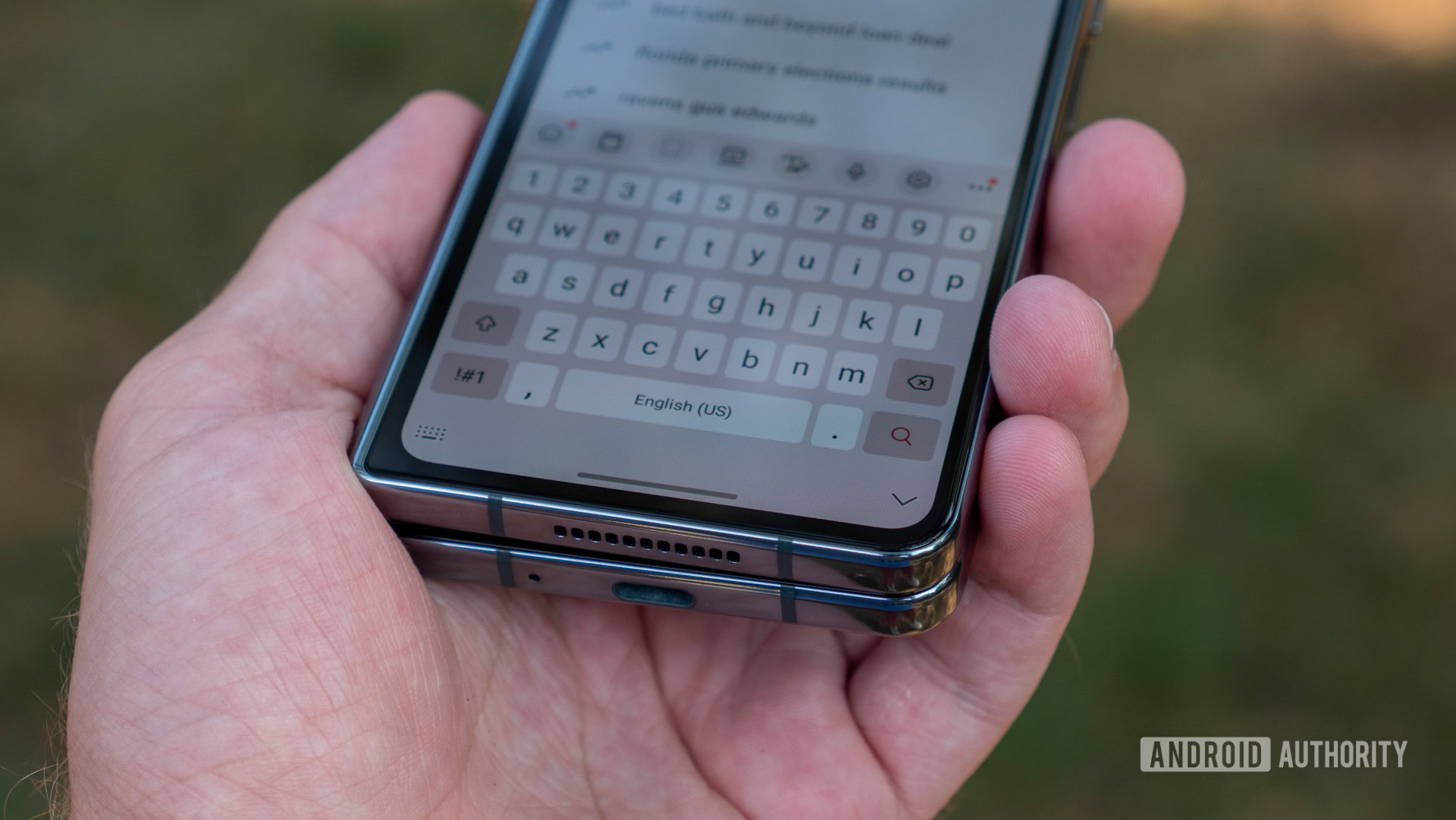
Ryan Haines / Android Authority
Galaxy Z Fold 4 (folded)
Just like with the overall design of the phone, Samsung didn’t change much regarding power with the Galaxy Z Fold 4. It has the same battery capacity and wired charging speed as we saw on the Galaxy Z Fold 3, which is a 4,400mAh cell and 25W, respectively. Samsung increased the wireless charging speed from 11W to 15W, which is nice, but that’s nothing to get excited about either.
Battery life is also relatively unchanged. Obviously, how you use the phone greatly affects how long it will last you. If you’re sticking mostly to the cover display and don’t use the larger internal display that much, you’ll get better battery life than someone who uses the internal display for everything. However, what’s the point of owning a foldable if you’re always trying to limit your usage of the internal display to conserve battery power?
Now, I don’t want to scare people away from this phone. When I was using it, I opened and closed it whenever I felt it was necessary, and I easily made it through an entire day with power to spare. However, someone who really wants to take advantage of that internal display isn’t going to be happy with the battery life of this device, and the fact that it charges at just 25W doesn’t help.
I really hope the next Galaxy Z Fold device comes with a bigger battery, faster charging, or both. Regardless, those advancements won’t help with the Samsung Galaxy Z Fold 4, as it’s stuck with what it’s got.
Under-display camera
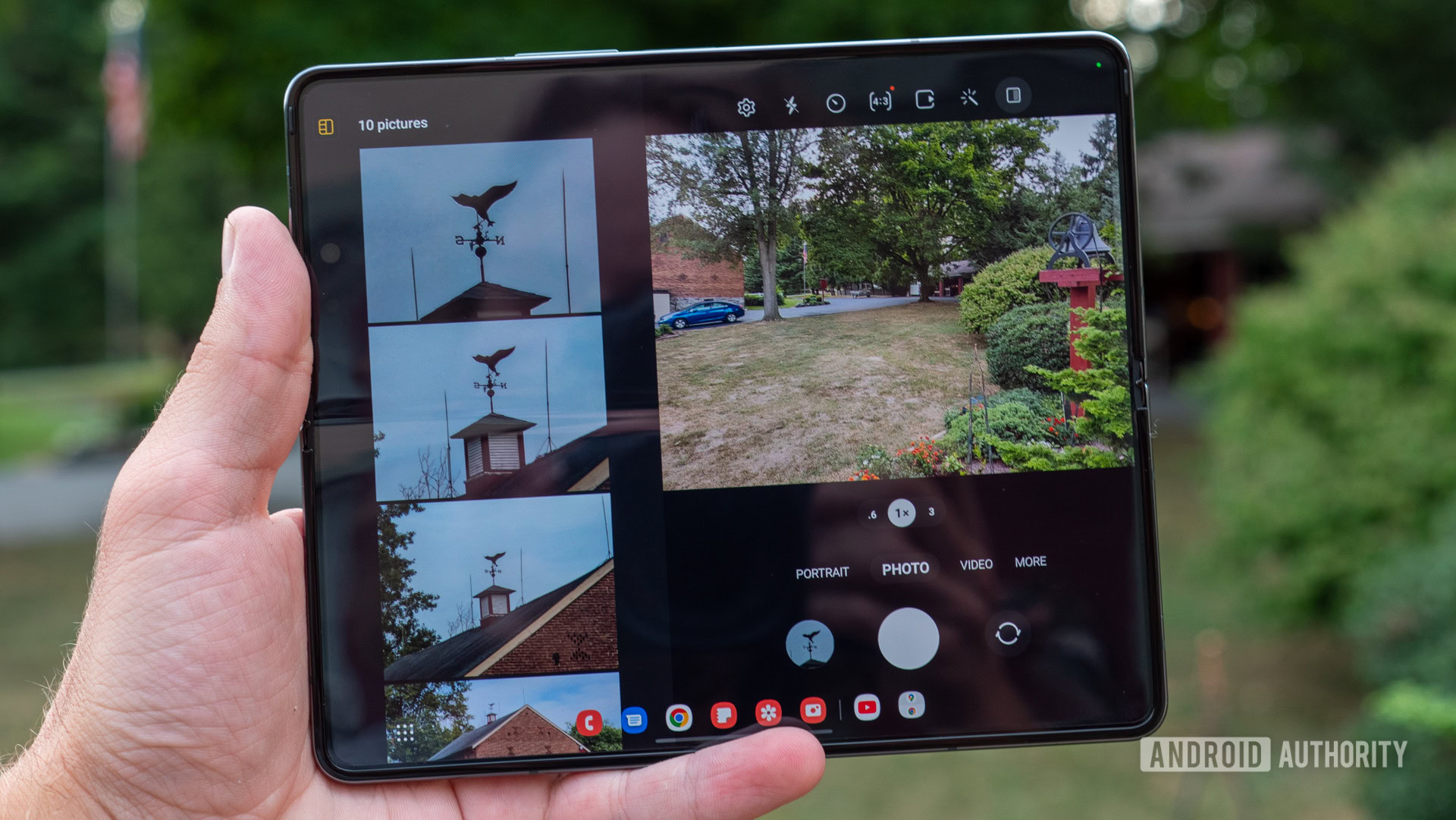
Ryan Haines / Android Authority
There are three ways to take a selfie with the Samsung Galaxy Z Fold 4. The first is obvious: use the cover display’s cutout selfie camera while the phone is in its folded state. It’s just like taking a selfie with any other normal phone. The second way is to use the rear cameras. With the phone folded, you open the camera app and tap the “Selfie” button in the upper left corner (not the usual rotation icon near the shutter button). Doing so instructs you to unfold the phone, turn it around, and use the cover display as a viewfinder while the superior rear camera captures the selfie. This process is awkward but gets you terrific results thanks to that 50MP primary sensor.
The third — and worst — way to grab a selfie is to use the camera that hides under the foldable display. This camera only appears when you want a selfie or when you’re doing a video call. At other times, the display itself covers up the camera as best it can so it doesn’t intrude on your viewing experience.
Thanks to the foldable OLED covering the lens, selfie results are pretty weak. Check out examples of all three methods below.
Now, I will be fair to Samsung here: the company does not want you to use the under-display camera for selfies. The reason the previously mentioned second method exists is to encourage people to skip this under-display camera for selfies and to use the rear camera instead. The under-display camera is supposed to be for video calls and other situations where you don’t need a high-quality image.
The problem, though, is that using the under-display camera is too easy. When you have the phone unfolded and the camera app open, if you hit the rotation icon near the shutter, One UI accesses the under-display camera. There’s no warning that you should instead use the rear camera by flipping the phone around before capturing your shot.
I think Samsung should just disable the under-display camera unless you’re doing a video call. When you try to take a selfie with the phone unfolded, it should just tell you to flip the phone around and maybe give the option to use the UDC if that’s what you really want. But honestly, no one should want to use this camera for any of their selfie needs. It’s just not good.
Samsung Galaxy Z Fold 4 review revisited: The verdict
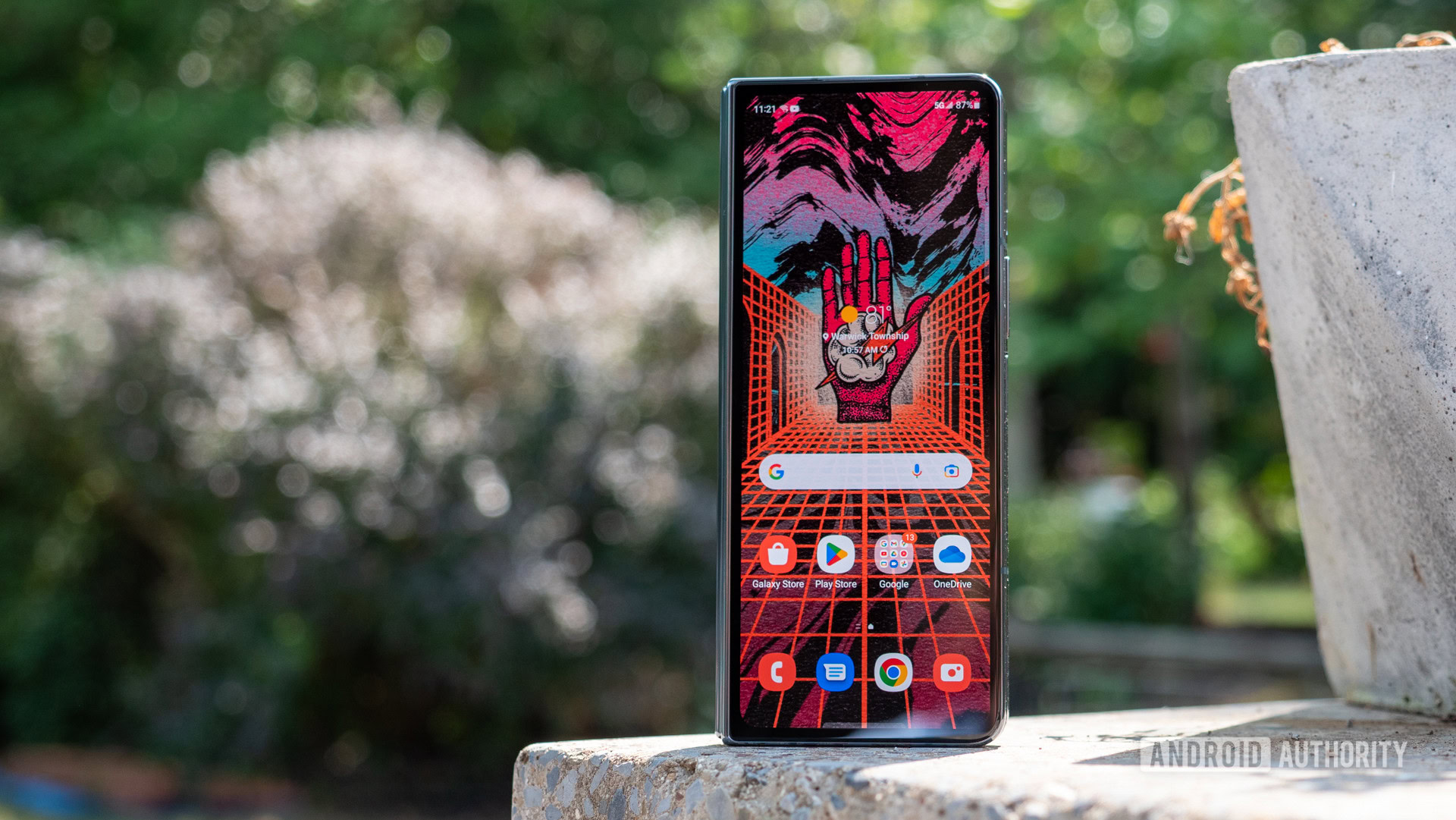
Ryan Haines / Android Authority
Six months after the launch of the Samsung Galaxy Z Fold 4, it is still the best foldable phone on the market. It has the best software, the best camera, the best availability, and the most features. Although there are some competitors out there, nothing can even hold a candle to the Galaxy Z Fold 4 when it comes to the full foldable phone package. If you’re after a more compact option then the Galaxy Z Flip 4 ($999.99 at Samsung) might be more alluring, but for those that want the biggest and best, the Fold is it.
That must mean that buying a Galaxy Z Fold 4, even in 2023, makes a lot of sense, right?
Unfortunately, two major things could make investing in a Galaxy Z Fold 4 a bad idea right now. The first is obvious: the inevitable launch of the Galaxy Z Fold 5, which will likely land in the late summer of this year. We don’t have too many reliable rumors yet for this phone, but it’s almost certain that it will be better than the Galaxy Z Fold 4 in numerous ways. It could feature a new design, better cameras, and brighter displays. It will definitely have a better processor and is guaranteed to come with Android 13 out of the box, giving it a longer period of software support when compared to the Galaxy Z Fold 4. Potential buyers should keep all this in mind.
Is the Galaxy Z Fold 4 still worth buying six months later?
167 votes
The second major problem with buying a Galaxy Z Fold 4 in 2023 is all the other foldables we expect to land this year. As mentioned earlier, Google and OnePlus will probably launch foldables soon, and they could offer different or possibly even better features when compared to Samsung. In Europe, things are getting even more hotly contested, with contenders from OPPO, Honor, and even Huawei. This all opens up the possibility of buyer’s remorse when you realize you shelled out for a Galaxy Z Fold 4 and now wish you’d invested in something else.
The silver lining, though, is that you can get a Galaxy Z Fold 4 on the cheap very easily right now. My advice is this: If money is no object to you, wait to see what Samsung, Google, and OnePlus do this year, but if you’re on a budget, grab a Galaxy Z Fold 4 now. If you’re not made of cash, you probably wouldn’t buy the new 2023 foldables when they launch anyway, so you’ve got nothing to lose and will be very happy with the Galaxy Z Fold 4.

Samsung Galaxy Z Fold 4
Marvelous multitasking • Large internal display • Long-term software support
A productivity machine
Samsung’s foldable Galaxy Z Fold 4 is great for productivity thanks to its large internal display. It also packs all the power you need and is promised to get four years of OS updates.
For all the latest Technology News Click Here
For the latest news and updates, follow us on Google News.

